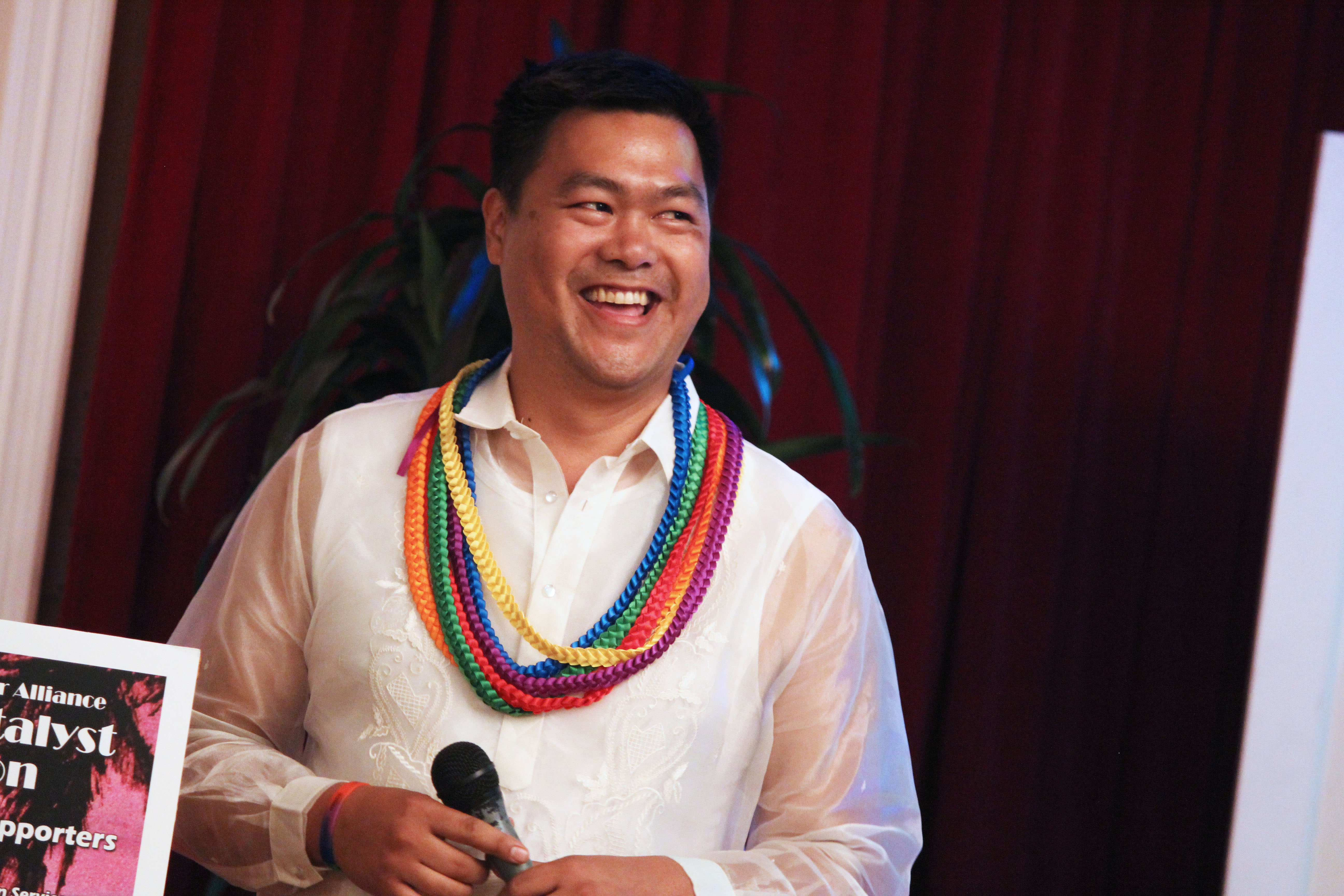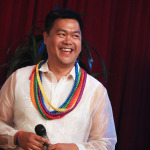As the new National Managing Coordinator for the Diverse Elders Coalition, I am pleased to write my first post for our blog here on World AIDS Day. Observed annually on December 1, World AIDS Day is recognized around the world with this year’s theme: Focus, Partner, Achieve: An AIDS-Free Generation. This theme directly invokes the idea of age and makes us “focus” in on how different generations experience the epidemic, and is particularly appropriate for us to think about here.
As an openly gay man, I grew up and entered my teen years during the height of the epidemic in the 1980s. At the same time, I grew up a child of immigrants in a Filipino American household with two cultural world views, neither of which were adequately equipped to address HIV/ AIDS. Ironically enough, at that time, as Filipinos were teaching the world about People’s Power and overthrowing the Marcos regime in 1986, I felt more pride than ever about being Filipino even as cultural and political attitudes about HIV/AIDS and being gay shut the closet door even tighter for me. In an environment where the Cardinal of the Philippines and his conservative social views held political power during the “bloodless coup” in the largely Catholic nation of the Philippines, and where President Reagan did not even say the word “AIDS” until 1987, the silent message was deafening- these issues are so bad we cannot even talk about them.
Thirty years into the epidemic, the work I now step into at the Diverse Elders Coalition uniquely addresses the intersections of race, ethnicity, sexual orientation, and age in important ways and as I think about HIV/AIDS, these intersections become even more important to consider. My age cohort puts me in a “sandwich” generation of sorts in the LGBT community- where I was not really old enough to be fully immersed in the gay community during the height of the epidemic, but yet older than subsequent generations of gay men that came out after antiretroviral treatments in the 90s became a game changer in how we think about the disease and the precautions we take (or fail to). On one hand, I find myself reminded by older gay men and LGBT people about what it was like to live during those times- and to survive them. At the same time, I am confronted by my own feelings about younger people in the LGBT community who don’t sufficiently appreciate the impact of the epidemic yet still reap the benefits of improved treatments and care without having lived through the fear and loss.
At play here as well is the very basic understanding that different communities experience the epidemic differently. People of color have much higher rates of contracting HIV/AIDS than the general population, with African Americans accounting for 46% and Latinos constituting 21% of all new infections, despite only making up 12-14% and 16% of the general population respectively. For Asian Americans and Pacific Islanders (AAPIs), recent data indicate a rise in the rate of new infections between 2004-2009, even when HIV infection rates declined for other racial and ethnic groups. The stigma that I grew up with around being gay and the epidemic continues to have its legacy in how my communities struggle with HIV/AIDS now.
World AIDS Day is an opportunity to reflect on the epidemic, to remember those we’ve lost, and to recommit ourselves to eradicating it once and for all. The work that has been done to address HIV/AIDS, from the activism from the 1980s that hit the streets to make its case, to the groundbreaking work happening now to address disparities in communities of color and across generations, to the global partnerships that fight to keep it a worldwide priority, has made an AIDS free generation a possibility.
NOTE: Recognizing that the HIV/AIDS epidemic has disproportionately affected communities of color and LGBT people since its beginning, the Diverse Elders Coalition released an original policy brief, Eight Policy Recommendations for Improving the Health and Wellness of Older Adults with HIV. Download the report.
Ben de Guzman is the National Managing Coordinator of the Diverse Elders Coalition. The opinions expressed in this article are those of the author and do not necessarily reflect those of the Diverse Elders Coalition.


